Digital transformation is an inevitable trend in all fields, including the health sector, with a focus on digital transformation in hospitals. At a working session with the Ministry of Health on the occasion of the 70th anniversary of the Vietnamese Physicians' Day (February 27, 1955 - February 27, 2025), General Secretary To Lam directed that in order to address the challenges facing the health sector, the health sector must increase the application of digital technology in medical management and treatment; promote digital transformation in health management; deploy electronic medical records, synchronize health data between hospitals and medical facilities, etc.
Up to this point, hospitals nationwide have embarked on digital transformation, creating many positive results. However, the speed of digital transformation in hospitals is uneven. Some places have strong digital transformation, "just working, not talking back", while others are still very sluggish and delayed, making it difficult to reach many goals set by the health sector. So what is the cause? What solutions can help hospitals comprehensively transform digitally, towards a smart hospital management model, smart health care for all people? This topic of CAND Newspaper will find solutions to the problem of digital transformation in hospitals.
Lesson 1: Technology helps diagnose many serious illnesses early, preventing loss and waste
Bach Mai Hospital is a special-class hospital in the country. Every year, this place examines and treats about 2 million people, causing the hospital to face countless challenges and pressures. But now those pressures and challenges are gradually being resolved and reduced as the hospital urgently and drastically carries out digital transformation. The initial results of digital transformation at this special-class hospital are spreading, encouraging many other medical facilities to transform, escape stagnation to promote the application of technology in people's health care.
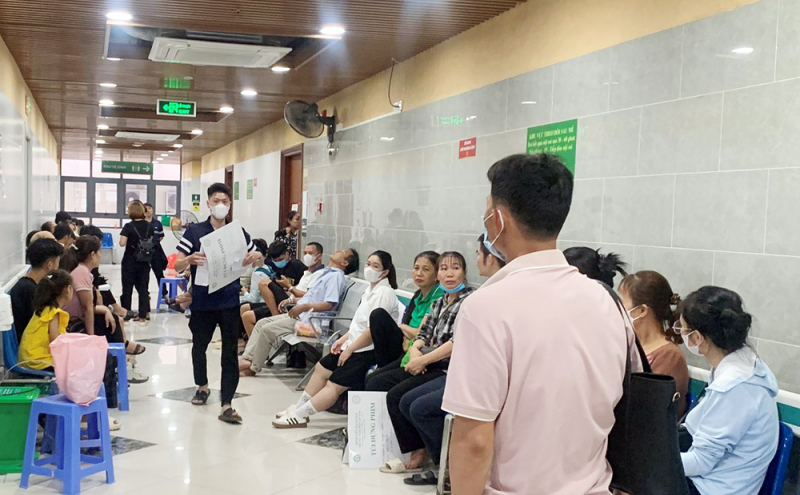
Despite spending an entire morning sharing with us about digital transformation, Associate Professor Dr. Dao Xuan Co, Director of Bach Mai Hospital, was not "stuck" with documents and papers to be processed, because while meeting us, he still electronically signed a series of documents. Previously, if he was away for only half a day, when he returned to the hospital, the documents would be backlogged and piled up.
Associate Professor Dr. Dao Xuan Co led us to the corner of the desk, where a large screen was flashing, displaying the number of patients coming for examination, patients being treated in each department, the number of tests completed, the number of surgeries completed, surgeries waiting for their turn...
He jokingly said that this was the hospital's "stock board"! Looking at it, he knew which department or room was overloaded with inpatients, then he immediately directed that unit to consider which patients had progressed well and then discharge them, or send them to lower levels for further treatment, to make room for new patients.
Thanks to that “electronic board”, he knows how many patients are coming to the emergency room, how many patients are undergoing intervention for brain and heart vessels, etc., so that he can give timely instructions. The tasks that used to take him a lot of time are now resolved quickly, without any congestion.
Technology has helped Associate Professor Co and the Board of Directors manage assets, supplies, medicines and people well (before, medical staff registered to go to work but the Board of Directors did not know whether they went to work or not, now thanks to scanning ID codes, the hospital leaders know exactly how many staff went to work...). The Board of Directors is so urgent, of course the departments and faculties below are also caught up in that urgent pace.
Sharing about the effectiveness of technology application in medical examination and treatment, Associate Professor, Dr. Dao Xuan Co excitedly said that 6 or 7 months ago, people from remote areas of Nghe An, Ha Tinh, Ha Giang , Tuyen Quang had to eat and wait, even had to lie under the hospital stairs to wait for their turn to be examined and have X-rays. Now it has changed, patients coming to Bach Mai Hospital will be examined during the day. At 6:00 a.m., the hospital door opens to welcome patients; at 2:00 p.m., all patients have X-ray and test results, patients have prescriptions, and then at 3:00 p.m., patients can go home.
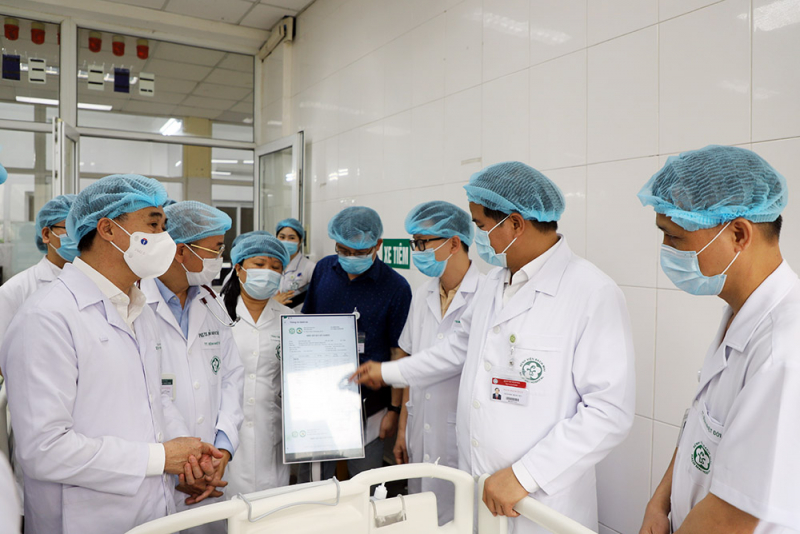
“Thus, with the technological solution, medical examination and treatment only takes place within 1 day, people are very excited because it saves a lot of costs and time”, Associate Professor, Dr. Dao Xuan Co shared. Currently, 100% of Bach Mai Hospital's data records have been digitized, patients coming to the hospital for medical examination only need to bring a smartphone.
Previously, every year, Bach Mai Hospital had to print millions of X-ray films, MRI films, millions of test results, and millions of sets of paper medical records, which was extremely troublesome and costly. Now, thanks to digital transformation, the hospital does not need to print films or test results, so every year the hospital has saved about 100 billion VND because it does not have to print or rent a warehouse to store medical records and procurement documents, saving costs and protecting the environment.
At the Institute of Tropical Medicine, Bach Mai Hospital, where a large number of patients are examined and treated (about 10,000 patients/year), Mr. Do Duc Ngoc, 60 years old, in Ha Dong, Hanoi, who is being treated for liver failure, told us that his test results were sent directly to the patient via Zalo by the doctor; and the diagnostic imaging films were also viewed online by the doctor, making the process much faster.
Associate Professor, Dr. Do Duy Cuong, Director of the Institute of Tropical Medicine, shared that digital transformation helps his Institute save time, save costs and make all processes transparent. He and his colleagues only need to "press a button" to know the patient's medical history. For example, if a doctor wants to know the status of measles, the software will help systematize the progression of measles, from temperature, white blood cells, liver enzymes, and inflammation indicators, so that the doctor can decide how to use medicine for the patient.
“Before, we had to find a test that was very difficult, had to go through the medical records over and over again, when it came time to summarize the medical records, had to sign many signatures, I was the last person to sign the records for the patient to be discharged from the hospital, many times the records were piled up, had to turn each page to sign. If we went to a consultation, the nurses each had a stack of medical records to go to the consultation, difficult to manage, easy to lose. Not to mention, paper medical records are very contagious, spreading bacteria and viruses.
Now that the hospital has implemented electronic medical records, we are very free. We can go anywhere without people, without having to carry a very large film and a stack of medical records, but still grasp the patient's condition. When patients come to the hospital, they only need a phone to pay by transfer, which greatly reduces the risk of theft. In one year, the Institute of Tropical Medicine alone examines and treats about 10,000 patients. Thanks to technology, the amount of money saved is not small," said Associate Professor, Dr. Do Duy Cuong.
Not stopping there, digital transformation and the application of artificial intelligence (AI) have helped Bach Mai Hospital diagnose many difficult diseases early. "With early cancer in the digestive tract, thanks to AI, we can immediately detect cancer in the mucosal layer, at that time the treatment is just to cut the mucosa, the patient will be completely cured, without having to undergo chemotherapy as before," Associate Professor, Dr. Dao Xuan Co said.
Associate Professor, Dr. Vu Van Giap, Deputy Director of Bach Mai Hospital, shared that Bach Mai Hospital is leading a state-level project, with members from the University of Technology (Hanoi National University), K Hospital, Hanoi Medical University Hospital, applying the model of "machine learning", "deep learning" with AI to help detect lung cancer at a very early stage.
“We relied on data from thousands of cancer patients in Vietnam and we had initial success. Our research team remembers a young patient, 48 years old, with a very small lung nodule. The doctor had to face two decisions, choosing the solution of continuing to monitor the nodule, the patient would face the risk of increased damage, invasion and metastasis, or the solution of performing intervention from the beginning.
And when we pushed the data to the AI system that we built, the AI predicted that the risk of malignancy from that nevus was over 90%. So we consulted and decided to completely remove that lesion, even though the lesion was very small, it was a malignant lesion. With the help of AI, we made the correct decision to operate at an early stage.
Currently, the patient is almost completely cured, without chemicals or chemotherapy, only needing monitoring and periodic re-examination. That is a very important achievement of technology and AI, helping doctors make accurate decisions, increasing work efficiency, not missing any injuries," Associate Professor Vu Van Giap said, and he expressed his desire to cooperate with scientists, hospitals, and research institutes to build a complete solution, serving the health care of Vietnamese people better and better.
Clearly, digital transformation is changing hospitals in all aspects, creating an urgent and effective working atmosphere. Associate Professor, Dr. Dao Xuan Co frankly said that digital transformation also helps to make all processes transparent, so the loss and waste in hospitals has also decreased sharply. When he started to make it transparent with technology, he also encountered many obstacles. Some people had their interests affected, and due to their conservative stagnation, they raised enough difficulties to not start digital transformation.
“They had 1,000 reasons to refuse, but I was still determined to do it. I sent professional staff to each department and faculty to guide them. In addition to ideological work for the staff, the strong determination of the leader is very important. I had “decoy” departments to attract other departments, and gradually everyone realized the value and great benefits of digital transformation, so they agreed.
Furthermore, when the process was made transparent, we saw loopholes and gaps that caused many materials to be wasted, which leaders could not grasp or explain before. But now with modern technology like this, we can accurately manage the input and output of medicines and materials every day, and there is no more loss," Associate Professor, Dr. Dao Xuan Co expressed.
He also added that digital transformation also helps a lot in scientific research when creating big data. Previously, in practice, there were thousands of cases, doctors wanted to do research on disease A, disease B, but how many cases could the doctor summarize, could the data be published. Now the story has changed. Thanks to technology, the hospital has a large data warehouse, from here there will be large research projects, ensuring reliability, doctors are confident enough to research and publish results in prestigious journals.
If you say that disease A is rare, then look in the database to see how many cases of disease A there have been in the past 5 years to know whether that disease is rare or not. For example, if Bach Mai Hospital has 2,000 cases of myocardial infarction each year, the hospital director will have to plan to buy enough machines to treat the disease; if there are 1,000 cases of stroke, of which 500 are cerebral infarctions and 60 require thrombolysis, the hospital director will also base on that to plan to invest in machines, medicine, and human resource training.
“Recently, the establishment of the National Data Association, with the Minister of Public Security as Chairman of the Association, will be a breakthrough strategy to turn Vietnam into a digital nation, in which the health sector will benefit greatly in state management and the issuance of macro policies for people's health care. Professionals like us doctors really need that data warehouse, especially data connectivity. We are ready to connect and share Bach Mai Hospital's data with colleagues and hospitals to develop together,” said Bach Mai Hospital Director Dao Xuan Co.
Source: https://cand.com.vn/y-te/chuyen-doi-so-tai-cac-benh-vien-tiet-kiem-hang-tram-ty-nguoi-dan-duoc-loi-i767849/


![[Photo] Closing of the 14th Conference of the 13th Party Central Committee](https://vphoto.vietnam.vn/thumb/1200x675/vietnam/resource/IMAGE/2025/11/06/1762404919012_a1-bnd-5975-5183-jpg.webp)

![[Photo] Prime Minister Pham Minh Chinh receives the delegation of the Semiconductor Manufacturing International (SEMI)](https://vphoto.vietnam.vn/thumb/1200x675/vietnam/resource/IMAGE/2025/11/06/1762434628831_dsc-0219-jpg.webp)





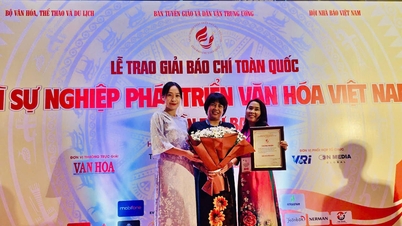

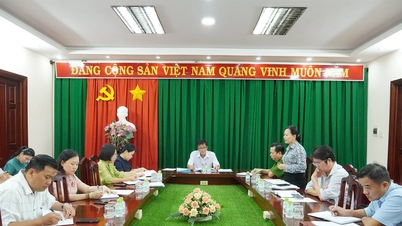










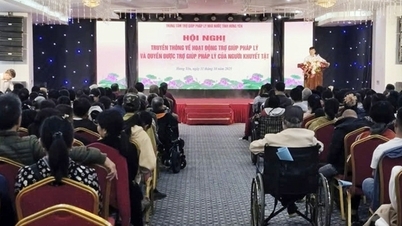

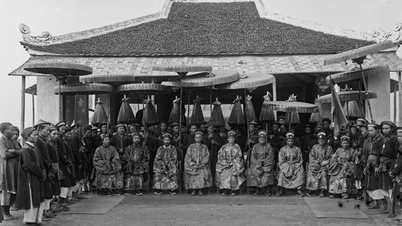






























































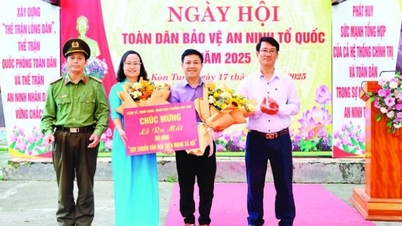














Comment (0)